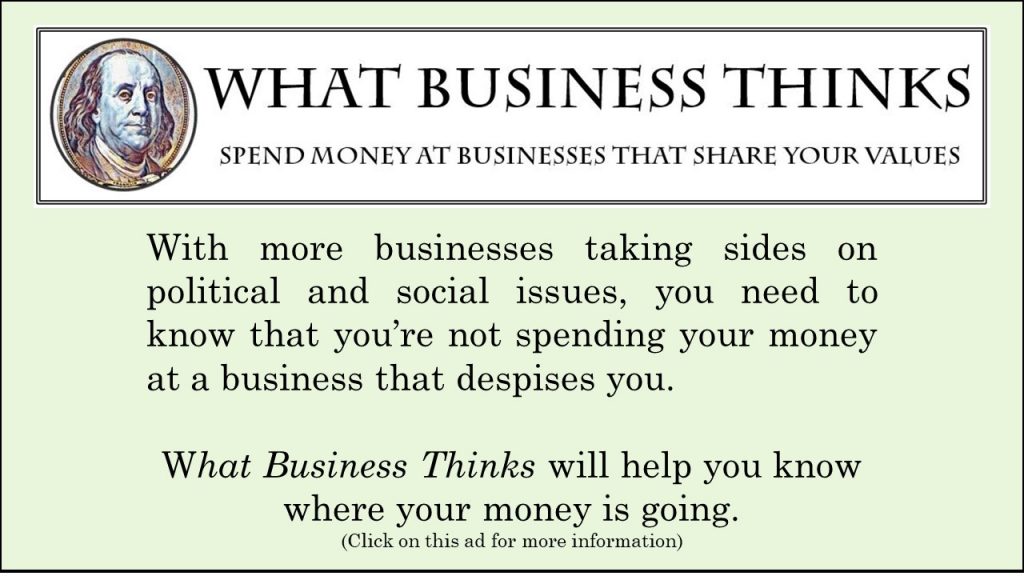Peter Thiel’s excellent point about political correctness and indulgences
When Peter Thiel compared Political Correctness and the Catholic Church in 1517, he revealed how truly corrupt Political Correctness really is.

I had the pleasure last night of attending an event at which Peter Thiel was the main speaker. Before he started speaking I knew that he was one of PayPal’s founders and one of Facebook’s earliest investors, that he openly supported Trump’s candidacy, and that he destroyed Gawker for outing him.
After Thiel’s speech, I knew a bit more: He’s a committed conservative-libertarian, he’s a lawyer, he’s extraordinarily well-read, and he’s a truly creative, highly intelligent thinker. Also, there’s no obvious artifice about him. He may be a billionaire, but he doesn’t view his membership in that club as proof of his brilliance. Instead, he’s an iconoclast who thinks deeply about things and, through his conclusions, proves his brilliance.
Thiel began his talk* by examining whether our society’s technology is flat-lining. He challenges the conventional wisdom is that we’re still in an upward technological trend, but that the low-hanging fruit is gone, and the geniuses have dried up. He feels the opposite is true: We’re stagnating now, there’s a great deal more fruit than just the low-hanging variety, and there is untapped genius out there.
The big question, of course, is why there is untapped genius? The most obvious answer is funding. In the computer world, where innovation is still happening, guys (mostly guys) can do what’s been done since the 1970s: Come up with a great idea at their home computer and, through hard work, intelligence, and luck, leverage that idea into something people need or want, and that then makes its inventors very, very rich.
However, there’s trouble brewing in the STEM (Science, Technology, Engineering, and Mathematics) world. Contrary to popular wisdom, which is that all STEM college majors will result in better paying jobs than any liberal arts major could, the only two STEM majors with a serious job market are Computer Science and Petrochemical Engineering. In everything else, a large pool of people is competing for the same money.
More than that, those handing out the money want to invest in sure things. That means the only projects getting financed are the safe ones, the ones that don’t challenge the status quo, and that don’t come out with some major, counter-intuitive thinking that could change an existing paradigm.
The problem for science types is that, in the 21st century, while one can still come up with computer technology on the cheap, it’s impossible to do so in the sciences. While early scientists once needed a microscope, a Bunsen burner, a few Petri dishes, and a note pad, today’s scientists rely upon equipment costing hundreds of thousands of dollars. They can function only with corporate, academic, or government funding. This turns every lab into a fiefdom, in which a large number of people are competing for a finite slice of research dollars and fame.
Which gets us to political correctness. Thiel sees political correctness as something akin to this famous video moment, with the blooming flowers emanating from a man’s head standing in for American energy and innovation, and the foot being political correctness:
In science labs, where there are ten employees and advancement only for one, political correctness can be used to cull the herd. The same is true across academia. Degrees are many and academic jobs are few. And the same is true in places such as Hollywood, where a very few men have the power to make or break people’s careers. As someone (and I cannot remember who) pointed out, unemployment in the movie industry is 90%. It’s easy to get that waitressing job. It’s much, much harder to get yourself in front of a camera.
Once in effect, political correctness utterly prevents people from breaking out of the box to come up with new ideas. We stagnate intellectually because the chance of innovating is far outweighed by the risk that one might be economically or socially destroyed. Lord knows, we’ve seen the Social Justice Warrior crowd savage people for wearing the wrong shirts, making the wrong jokes, or proposing new solutions to politically approved problems.
If political correctness is so destructive, why is it still so dominant in public discourse? Thiel believes that political correctness is an overt sign that the person showing that correctness is one of the chosen. In this way, political correctness mirrors two trends from 500 years ago. (The following discussion starts with Thiel’s core point about Indulgences and the Protestant Reformation, but I’m expanding upon it.)
Theil’s “500 years ago” analogy is a very precise one. It was exactly 500 years ago this past Tuesday that Martin Luther shook Christendom to its foundations when he nailed his 94 theses to the door of the Wittenberg Church. Luther wasn’t challenging Christianity. He was challenging what he saw as a corrupt Catholic Church that was perverting Jesus’s message and denying the faithful access to true salvation. Luther especially challenged the church’s infamous indulgences.
For those who were not European history majors, in their purest form, indulgences encouraged sinners to show true repentance and remorse for non-mortal sins. If they made the proper showing (and included a little donation to their local church), the priest could issue an indulgence that could lessen the sinner’s time in Hell or Purgatory, and result in an ultimate trip to Heaven. The expectation that the sinner truly repented carried with it the unspoken corollary that he would sin no more.
Seen in that light, it’s obvious that the indulgence was an incentive for people to repent and turn their lives around. After all, if they had no hope that Heaven awaited, those who had sinned had no reason to refrain from sinning.
Over the centuries, though, indulgences became a corrupt profit center for a church that was too often concerned with earthly wealth rather than Heavenly rewards. Eventually, anyone with enough money, no matter the sin and no matter the absence of true remorse and repentance, could pay a local priest to have the slate wiped clean — or so the priest promised. Evil-doers could take as many sips from that well as their purse could afford. By paying regularly for indulgences, they were immune from the eternal fallout of their continuing wrongful acts.
Luther’s theses sparked a Protestant Reformation that, among other things, rejected priestly intervention to alleviate sin. (The Protestant Reformation also sparked a Catholic Counter-Reformation which saved the Catholic church, but that’s another subject altogether.)
One of the fall-outs from the Protestant Reformation was that Protestants needed some other way to encourage parishioners to avoid sin and walk in God’s footsteps, confident that they would end in Heaven, not Hell. So it was that many early Protestant sects believed that a person’s salvation (and godliness) could be determined by looking at his material success and properly sanctimonious conduct.
Under this theory, business success (whether in shipping or farming or something else) showed God’s blessing. That the person deserved the blessing could be seen from an overtly proper lifestyle, shown in modest clothes, blaspheme-free speech, and regular, overt church attendance. In that way, the good Protestant could look at his poorer neighbor, especially the one who sometimes missed church, and console himself with the thought that “I am indeed holier than thou.”
I should say here that the above is a very simplified version of the state of the Catholic church in 1517 and of the vast changes that the Protestant Reformation brought about. For my purposes, though, those simplified ideas are sufficient.
Thiel likened modern academia to the Church in 1517, with the professors and administrators functioning as priests preaching the gospel of political correctness. Those salvation-seekers who pay $200,000 in tuition — that is, who pay indulgence money — then receive this gospel and are saved. Good things will happen. Those who don’t buy their indulgences and prove through overt behavior that they are headed to Heaven are, instead, bound for bad places, such as blue-collar jobs — or, as John Kerry memorably explained:
You know, education, if you make the most of it, if you study hard and you do your homework, and you make an effort to be smart, uh, you, you can do well. If you don’t, you get stuck in Iraq.
Once out of the sacred halls of academia, a Protestant note creeps into the liberal’s sense that he is saved, while you are not, and that everyone knows he is saved. Without a priestly professorial class to grant indulgences, the good Leftist must use overt political correctness to prove his salvation. While the Puritan would pray regularly, give alms to the poor, and achieve material success, the good Leftist drives a Prius or Tesla, noisily donates to the NRA, and boasts “I’m with her.”
The big shock Progressives sustained in the last month was discovering that large numbers of aggressively Progressive men in the Hollywood and similar environs, when boasting “I’m with her,” were not simply advertising the political correctness behind their support for Hillary Clinton. They were, instead, sending a subliminal signal that the “her” with whom they found themselves was whatever woman happened to be available at the moment and subordinate to them in power. Moreover, once having found this women, they would spend time with her by pinching and fondling her, embarrassing her through crude speech or open masturbation, or even raping her.
[I have to take a slight detour here about the Hollywood sexual abuse scandal. One of the weirdest accusations against Weinstein and others is that they used the power imbalance to masturbate in front of women. Ace gets how bizarre this is:
Meanwhile, six women have come forward to accuse much-maligned piece-of-shit director Brett Ratner of sexual harassment, including, once again, masturbating in front of them.
I don’t get that. I have fantasies about having sex with women while masturbating. I do not have fantasies about masturbating in front of women. This is deeply weird. Talk about aiming low. You really have to be a stunted beta to view unsolicited wacking-off in the proximity of a woman as basically a home run.
Now back to my point — or, rather, my elaboration of Peter Thiel’s point.]
There’s a reason that these sex scandals are burning brightly the Left side of the political aisle, whether in Hollywood, the mainstream media, or even in Sacramento, which is the political heart of uber-Progressive California.
It’s not just that the Left destroyed standard morality, opening the way for people to act as they please when it comes to sex.
It’s also not just because feminists have insisted that they are just like men, right down to treating sex as a purely physical outlet without emotional content.
And it’s not even that rich and powerful men can always and have always preyed on women.
Instead, what’s going on here a direct byproduct of Political Correctness: As I said above, in the late Middle Ages the marauding lord, by purchasing an indulgence from a priest who focused more on lucre than the Lord, could bypass restraint, guilt, and repentance entirely, and commit whatever venal and mortal sins he desired.
Today’s marauding “lords” behave in the same way because they too believe they’ve bought eternal redemption. Infusing their speech with political correctness, and spending lavish money to support gun grabbing, abortion, socialized medicine, feminism, and Hillary had them believing that they were home free no matter the sins they’d committed in the past or intended to keep committing in the future.
Ironically, the fact that these men, up until a few weeks ago, knew they could get away with sexually abusing woman comes about because of Hillary “I’m With Her” Clinton. Back in the 1990s, starting with Hillary, and then flowing down through the media and higher education, one message came through loud and clear: If you’re aiding the Progressive cause, you get a pass.
Did it matter that Bill Clinton was credibly accused of rape, sexual assault, and workplace sexual malfeasance? No. It mattered that he supported Planned Parenthood and would keep the Supreme Court safe from pro-Life jurists. As Nina Burleigh so memorably stated in 1998, at the height of Bill Clinton’s sexual scandals, she would have been “happy to give [Bill Clinton] a blowjob just to thank him for keeping abortion legal.”
Weinstein, Ratner, Affleck, and Spacey all behaved as they always had since 1998: They sent the right checks to the right groups and applied political correctness to their speech while policing it in other’s. By doing so, they were certain that they had purchased indulgences in the Catholic sense and proved their righteousness in the Protestant sense. As for the actual sins they committed — not only were their victims silenced, but they were expected to genuflect before these stalwart defenders of political correctness.
For those of us disgusted by political correctness and the sins that have been hiding behind it, it’s a wonderful thing to see Leftists turning on each other and erasing the political correctness “sin pass.” What a delicious shock it must have been to Weinstein, Ratner, Affleck, Spacey, and all the others who boasted about their feminist credentials to discover that the indulgences are over. Attacking the NRA, coming out gay, and supporting abortion aren’t good enough any more. It’s not enough just to look good (in the politically correct sense of the word); it turns out that, in Trump’s America, you actually have to be good.
___________________________
* I wasn’t taking notes, so I’m sure I’m not being entirely accurate about what Thiel said. I’m pretty sure, though, that I got the gist of it. And as I said, I’ve embroidered on his core point about the similarity between colleges and universities, on the one hand, and the Catholic Church in 1517, on the other hand.
Photo credit: Harvey Weinstein, Chairman, The Weinstein Company, by Thomas Hawk. Creative Commons license; some rights reserved.
*****


